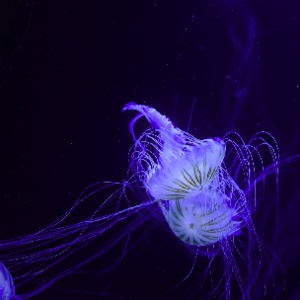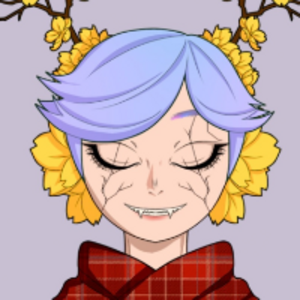I.
I want to tell you the story of how I lost myself. Of how I made away with my body and consciousness through careful, cold and state-approved methods. By choice. For love. But I can’t tell you that story honestly. Because the “me” who did all of that no longer exists. I am, so to say, a result of her actions. I was born when she died, I was born because she died. So I’m going to tell that story... dishonestly. I’ll tell it through memories.
Human memory is weird. It’s fickle, and changes all the time, courtesy of your brain’s ability to learn and adapt. Evolution didn’t select you for your skills as a reliable data center, it selected you to survive. So thank your biology for the fact that all your memories are forgeries. You never really lived through the things you remember. Doubly so, if you’re made of the same stuff as me.
This is a memoir, in a certain way.
Therefore, it’s completely fictional.
I remember the station. Vast, well-lit, with hundreds of people roaming about. Stalls with vendors trying to sell you their products for a profit: such an alien concept, to me, in more ways than one. I couldn’t help but compare it with the tiny station we had back home. The smells were different, the people were different, there was much less noise, and much less... everything. I felt overwhelmed.
The display overhead flashed with my name on it. I got up and walked to the counter. A glass partition separated me from the immigration officer on the other side.
“Name and pronouns?” asked the officer, mechanically, not even looking at my face.
“Lyra Esperanza, she and her,” I replied.
“Miss Lyra, then...” the officer typed something on their computer system. “Well... I’m having some trouble finding your personal data,” they informed me, while typing. “I’ll need to ask you a few questions, is that all right?” I nodded. “Very well,” they said. “What is your country of residence?”
I shifted in my seat, nervously. “Umm... I’m... not actually from a country. I come from Mars.”
For the first time since I arrived there, the immigration officer actually looked at me. “You’re a Martian?” they asked. Surprise was written all over their face.
“I am, yes. Is that a problem?”
The officer shook their head. “Not at all,” they began typing again. “Wow, it’s been ages since we’ve had an actual Martian. I mean, we do get people returning from vacation and work, but it’s been years since I’ve last seen one of your kind.”
“My... kind?” I asked, uncertain.
“Martians, yes,” said the officer. “Aliens. Born in outer space. Are you just visiting Earth, or do you plan to stay?”
I half-smiled, sadly. “Stay. I... have a green card, you will probably find that in your system.”
They nodded, and went back to typing. “Say, you people aren’t very sociable, right? Well, not like us, Terrans. I think it’s freaky how your ancestors just decided one day to abandon Earth and go live on a dead rock in space. Kinda gives the word ‘recluse’ a whole different meaning, doesn’t it? How is that terraforming thing going, by the way? I haven’t heard much about it from the news, lately.”
“Oh...” I racked my brains for any information I could recall about the terraforming project. “It’s going... okay, I think. For now, everyone still lives in the colonies, there’s a lot of work still to be done with the atmosphere. But my parents said that it’s possible that the entire planet could become habitable within the next two centuries.”
The officer chuckled. “So it’s still a barren desert. No wonder you’re leaving.”
That remark unsettled me.
“I’m sorry, what?”
“Oh, just, you know, it’s Mars,” said the officer. “It must have been really hard growing up in that wasteland, starving and poor. I can see why you chose to come live here in civilization. Tell me, do you people really eat your dead so that no resources are wasted?”
I felt disgusted. I had never heard something so outright rude before.
“We’re not cannibals,” I retorted, angrily. “Nobody is starving and there’s enough food for everyone. And nobody is poor either, that is a Terran thing. We don’t have that on Mars.”
The officer just smiled, condescendingly. A soft beep sounded beside them. “Your documentation is done,” they said. “Welcome to Earth, Martian.”
I gritted my teeth. That person got on my nerves. But it didn’t matter, I was free to go, now. I turned around and walked briskly down the aisles between seats until I was standing before the station doors.
I stared through the glass into the world outside. The blue sky of Earth loomed overhead, and people walked on the street. No oxygen masks. No concerns for structural leaks in airtight facilities that supported you with breathable air. I knew things would be like this, once I arrived. I’d seen videos, photos, read everything I could about the planet before coming. And yet, taking that first step outside was challenging. I had an ingrained fear of open spaces which was hard to overcome. I closed my eyes, and tried to prepare for the challenge ahead of me.
One.
Two.
You can do this, Lyra.
Three.
The glass doors opened, and the air that came from outside did not suffocate me. I took a few steps further. I was fully outside now, and it was taking most of my willpower not to turn around and run back inside. My emotions were contradictory. I felt scared, but knew that my fears were irrational, so I also felt silly, and out-of-place. Would I ever be able to get used to this?
“Lyra?”
The voice snapped me out of my musings. I turned around to look, and saw a girl smiling at me. It stunned me for a moment. She looked familiar, but I couldn’t quite place why. Her hair was coily and her skin was dark, like me, but the resemblances ended there. She had a round face, an upturned nose and the most dashing smile I had ever seen in my life. I wasn’t particularly tall, myself, but that girl was at least 20 centimeters shorter than I was.
She pulled the brakes from the wheels, and came up to me. Her wheelchair looked very modern, sophisticated, and so did her clothes. She had two thin braids of golden hair charmingly tucked behind her ears.
She stopped in front of me, and smiled again. “I’m glad I was able to get here on time.”
That’s when I realized it. “Sophia?”
The girl giggled. “What, were you expecting someone else?”
I stared at the girl in front of me, stunned. How many years had it been since I’d last seen a picture of her? She looked beautiful, now.
“I... wasn’t expecting anyone, actually,” I told her. “I mean, your mother gave me her address as soon as I landed, so I thought I was supposed to meet you all there.”
“I got worried,” Sophia explained. “You’ve never been to Earth before, I was afraid you might get lost. Was it wrong of me to come?”
I stuttered, nervously. “Oh, no, of course not. I’m... grateful, actually. Thanks for coming to get me.”
“Shall we go, then?” said Sophia. I nodded, and watched her as the girl turned around and led me down the street to where a car was waiting for us.
We had cars on Mars — useful things intended to quickly take us between the colonies, and sometimes even between different segments of a single colony. They were projected to be functional, carrying passengers and products with ease. Terran cars looked nothing like that. They had a modern design, were built for no more than four passengers, and looked as sleek inside as out. As soon as we got in, the car began driving itself down the street and then dove into an opening on the ground, into one of the tunnels that served to connect different parts of a city quickly and effectively.
“So, Lyra... how do you like Earth, so far?” Sophia asked.
I shrugged. “I’m not sure,” was my honest answer. “I mean, all I’ve seen of it is the station, so I can’t really give that an answer just yet. But it’s different from Mars.”
“Good different?”
“Just different,” I explained. “I can’t tell if that’s a good thing or not, yet.” The situation I had just been through with the immigration officer had left a terrible impression on me. I hoped not all Terrans would be like them.
Silence fell between us. I stared idly outside the window, at the walls of the poorly-lit tunnel we were being driven through. I could feel Sophia stealing glances at me, several times. I tried to ignore it, the first couple of times, but at some point I just had to ask.
“Is something wrong?”
Sophia shook her head, slightly alarmed. “No. Of course not. Why?”
“Well, you’re... staring,” I told her, awkwardly.
The girl buried her face in her hands. “Shit. Sorry for that.”
“I don’t mind,” I hurried to tell her. “I was just wondering if there was a reason.”
“It’s because you’re here,” she said, looking up from her hands, but not looking at me. “I’ve been waiting to meet you ever since my dad told me you were coming. It’s been... what? A year?”
“Fifteen months,” I corrected her. “And nine days. In Mars time, so probably a little more than that if you convert it to the Earth calendar.”
Sophia chuckled. “You kept track?” she asked, amused.
I frowned. Of course she didn’t know what it was like, why should she? But she must have realized what I was thinking. I saw her smile fade as comprehension dawned on her face, and silence fell between us once more.
“I hope you like Earth,” she told me, after a while. “I mean, it’s nothing like where you come from, so I’ll understand if you don’t, but it’s my home, I’d be happy if you enjoyed your time here. Are you going back to Mars, by the way? After your transference?”
“I don’t know,” I replied. “I’m not sure I’ll be able to. There are no synths in the Martian colonies, as far as I’m aware. And I’ve decided that I want to pay your parents back for bringing me here, which means I’ll have to work on Earth, at least for a while, to gather enough of that Terran money thing.”
“You don’t have to, you know,” Sophia argued. “Mom and dad were happy to pay for you to come. I mean, sure, it’s a lot of money, but you’re family, and they want you here.”
Hearing that was a surprise. “Am I really?” I asked, earnestly. Sophia and I locked eyes. “I mean, my brother Nash is your second cousin, but I’m mom’s daughter from her first marriage. I’m not related to you or your parents at all.”
Sophia snickered. “Look here, Lyra, I don’t really care if we’re related by blood or not, you’re my family. My cousin.”
“Second cousin, if even that,” I corrected her.
Sophia shook her head. “Cousin,” she insisted. “You’re in Rio now. We do things differently, here. According to our culture, even if you’re outside my immediate family, and even if we’re not related by blood, you’re still my parents niece, and you’re my cousin.”
I stifled a laugh. “Does that even make any sense?”
“I don’t know!” said Sophia, brushing it off. “It’s just how we do stuff.”
“All right, then,” I said, playing along. “Nice to finally meet you in person, cousin.”
She beamed. “Yeah. Same here.”
II.
I remember how it all started. I was having lunch with my friends at the community center. A sharp pain flared along my spine. I felt my mind going dizzy, and I’m told that I collapsed on the floor, just then.
Two weeks later, the diagnosis was confirmed. A rare case of some syndrome I had never heard of. Incurable, essentially untreatable, and invariably fatal. I still remember what my primary care physician sounded like when they announced my prognosis. Twenty-seven to forty-five months, in Martian time. That was all I had left to live.
Six months after that, Orion, my step-father, knocked on my door with surprising news. He explained to me what synths were, and what a transference was. He told me that his cousin, Lucas Melo — “Do you remember him, Lyra? He’s Sophia’s father” —, was a synth scientist in one of the leading laboratories in that field, in a city called Montevideo, on Earth. And, he told me that if I wanted to, I could get a transference too. It was the closest thing to a cure I could ever dream of achieving.
I wrinkled my forehead, and smiled, amused. “What, on Earth? Are you kidding?”
Orion shook his head. “I’m not kidding, bunny.” I cringed. Mom and Orion had both been calling me by that nickname ever since I was seven-years-old. I was eighteen, now, and I wished they’d stop. “Lyra, my cousin has offered to pay for your journey to Earth. You could go live there with them.”
I laughed. This sounded outright absurd.
“Give it some thought,” said Orion. “It’s a unique opportunity for you.”
At that moment, the entire idea of going to Earth to turn into an android sounded to me like madness. I told Orion that I would think about it, and left.
Later that same day, I had another flare of my disease. But I wasn’t in the community center, this time. I was outside the colony, taking a stroll. I hardly ever left the colony, I don’t know what possessed me to do so, that day. And then I felt the piercing pain on my spine again, and panicked. I realized I was going to pass out again, and knew that I was alone, and too far away to make it back to the colony on my own. A few seconds later, my vision went black, and I fainted.
Heaven knows for how long I stayed out there in the cold. It was sheer and dumb luck that someone happened to find me before my oxygen ran out.
I nearly died, that day.
The next morning, I had already made up my mind to accept Mr. Melo’s offer.












Comments (2)
See all